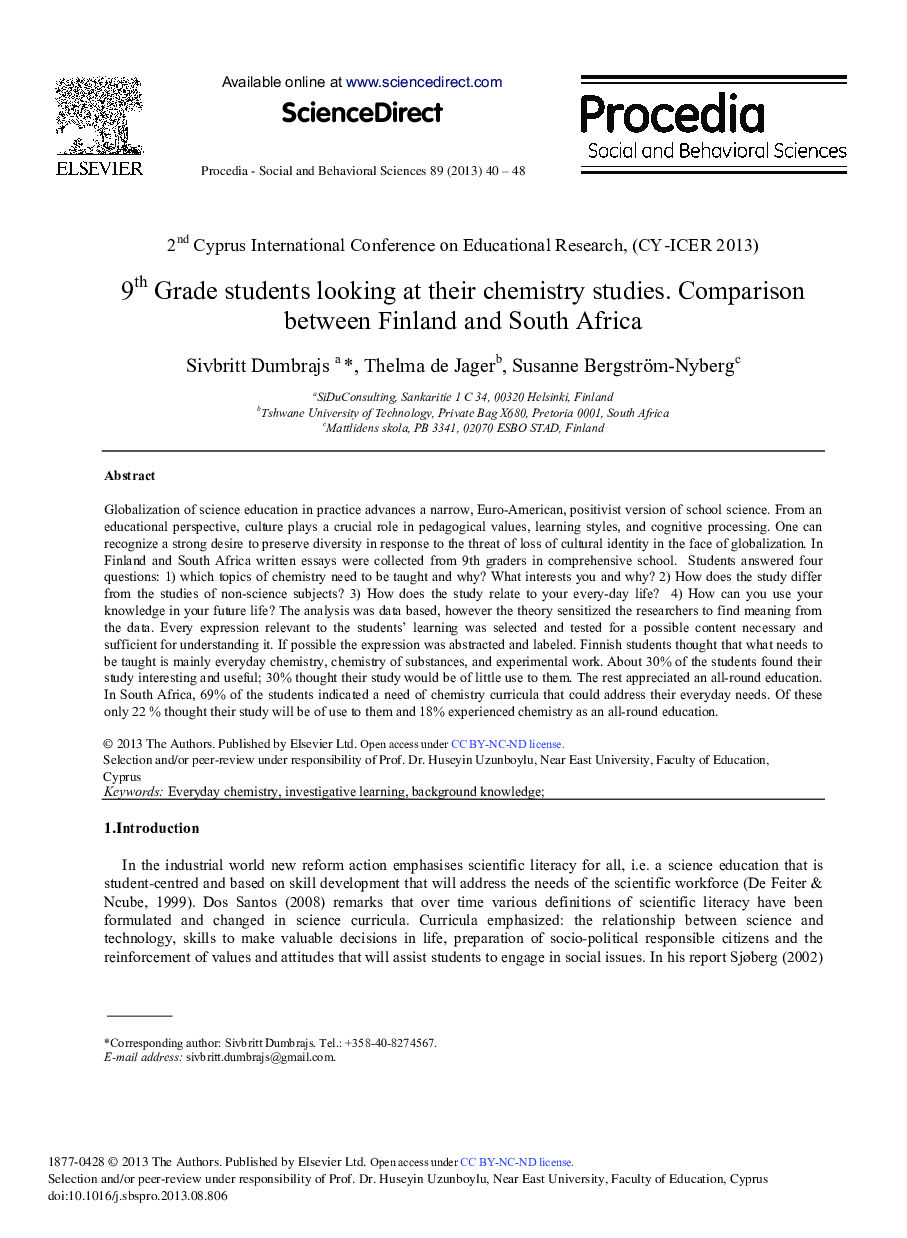| Article ID | Journal | Published Year | Pages | File Type |
|---|---|---|---|---|
| 1119286 | Procedia - Social and Behavioral Sciences | 2013 | 9 Pages |
Globalization of science education in practice advances a narrow, Euro-American, positivist version of school science. From an educational perspective, culture plays a crucial role in pedagogical values, learning styles, and cognitive processing. One can recognize a strong desire to preserve diversity in response to the threat of loss of cultural identity in the face of globalization. In Finland and South Africa written essays were collected from 9th graders in comprehensive school. Students answered four questions: 1) which topics of chemistry need to be taught and why? What interests you and why? 2) How does the study differ from the studies of non-science subjects? 3) How does the study relate to your every-day life? 4) How can you use your knowledge in your future life? The analysis was data based, however the theory sensitized the researchers to find meaning from the data. Every expression relevant to the students’ learning was selected and tested for a possible content necessary and sufficient for understanding it. If possible the expression was abstracted and labeled. Finnish students thought that what needs to be taught is mainly everyday chemistry, chemistry of substances, and experimental work. About 30% of the students found their study interesting and useful; 30% thought their study would be of little use to them. The rest appreciated an all-round education. In South Africa, 69% of the students indicated a need of chemistry curricula that could address their everyday needs. Of these only 22% thought their study will be of use to them and 18% experienced chemistry as an all-round education.
